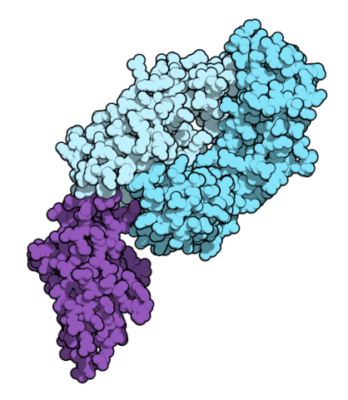Opdivo® (nivolumab) for Mesothelioma Treatment

Opdivo® (nivolumab) has revolutionized mesothelioma treatment as an immunotherapy drug. This medication falls under the category of immune checkpoint inhibitors, working by enabling the immune system to target cancer cells that it would typically ignore. Additionally, Opdivo is classified as a monoclonal antibody, a synthetic immune system protein.
Opdivo has received approval from the U.S. Food and Drug Administration (FDA) for various cancer types. Notably, in combination with Yervoy®, it is an FDA-approved treatment for pleural mesothelioma, a form of mesothelioma that cannot be surgically treated.
Crucial Information About Opdivo
- Generic name: Nivolumab
- Brand name: Opdivo
- Administration: Intravenous
- Often combined with: Yervoy (ipilimumab)
- Mesothelioma types treated: Biphasic, epithelioid, peritoneal, pleural, sarcomatoid mesothelioma
- Manufacturer: Bristol-Myers Squibb
- FDA Approved
How Opdivo Works Against Mesothelioma
Opdivo’s mechanism of action involves blocking the PD-1/PD-L1 immune checkpoint, allowing immune T cells to identify and attack cancer cells. These checkpoints typically prevent T cells from targeting healthy cells but are exploited by cancer cells to evade the immune system. By disrupting these checkpoints, Opdivo activates T cells to recognize and eliminate cancer cells. However, this immune response may sometimes affect healthy cells, resulting in side effects.
Clinical trials, notably the CheckMate 743 trial, have demonstrated Opdivo’s effectiveness in mesothelioma treatment. When combined with Yervoy, Opdivo significantly extends median survival compared to conventional chemotherapy.
Opdivo and Yervoy’s Impact on Malignant Pleural Mesothelioma
Both Opdivo and Yervoy are immune checkpoint inhibitors, but they target different checkpoints—Opdivo acts on the PD-1/PD-L1 checkpoint, while Yervoy influences the CTLA-4 checkpoint. These drugs are administered through injections.
Significant outcomes from the CheckMate 743 trial include:
- Effectiveness across mesothelioma cell types: Challenging-to-treat biphasic and sarcomatoid mesothelioma cell types displayed a median survival of 18.1 months with Opdivo and Yervoy, matching the overall trial’s median survival.
- Enhanced median overall survival: Patients receiving Opdivo and Yervoy experienced a median survival of 18.1 months, a remarkable 30% improvement over chemotherapy.
- Improved survival rates: At one- and two-year follow-ups, Opdivo and Yervoy-treated patients exhibited survival rates of 68% and 41%, respectively, surpassing those of chemotherapy patients at 58% and 27%.
For individuals with unresectable malignant pleural mesothelioma, Opdivo and Yervoy represent a potential treatment option.
Opdivo’s Role in Asbestos-Related Lung Cancer
Opdivo and Yervoy’s combination has also secured FDA approval for treating non-small cell lung cancer (NSCLC), often linked to asbestos exposure. A pivotal clinical trial, CheckMate 227, compared this combination to conventional chemotherapy for stage 4 NSCLC. Patients receiving Opdivo and Yervoy achieved a median overall survival of 17.1 months, surpassing chemotherapy’s 13.9 months.
While Opdivo’s label specifies its use for pleural mesothelioma, healthcare providers may use approved drugs off-label to address conditions not listed on the label. This practice, both common and legal, expands treatment possibilities, especially for patients with rare conditions like mesothelioma.
Opdivo (Nivolumab) Treatment
Opdivo, often administered alongside Yervoy, involves regular infusions following manufacturer recommendations:
- Opdivo infusion every three weeks
- Yervoy infusion every six weeks
- On combined treatment days, Opdivo precedes Yervoy via separate infusion lines.
Infusion duration may vary but typically lasts 30 to 60 minutes. Treatment can extend up to two years, with potential adjustments based on cancer progression and side effects. Patients are advised to prepare for treatment and seek guidance on dietary, exercise, and rest considerations.
Managing Opdivo (Nivolumab) Side Effects
Opdivo, like many cancer treatments, may trigger a range of side effects. Healthcare teams diligently monitor patients to promptly address any adverse effects. These side effects can range from mild to severe and are often short-term, manageable with medications.
Common side effects from Opdivo include abdominal pain, cough, decreased appetite, diarrhea, fatigue, itching, joint pain, nausea, and rash. While severe reactions are possible, they generally respond well to treatment, often involving corticosteroids.
Opdivo (Nivolumab) Eligibility
Eligibility for Opdivo treatment depends on factors such as tumor location and disease stage. Presently, Opdivo and Yervoy stand as the sole FDA-approved immunotherapy for mesothelioma, primarily for adults with unresectable pleural mesothelioma. Patients considering this treatment should consult their healthcare team to assess its suitability for their specific case.
Opdivo (Nivolumab) Clinical Trials and Research
Opdivo’s effectiveness has undergone rigorous assessment in various clinical trials, with the CheckMate 743 trial delivering particularly encouraging results. Ongoing and forthcoming trials aim to explore Opdivo’s potential in diverse mesothelioma scenarios, including pre-surgery application, combination therapies, and second-line treatments.
Patients contemplating participation in clinical trials should engage in discussions with their healthcare providers to assess eligibility and explore relevant trial opportunities.
